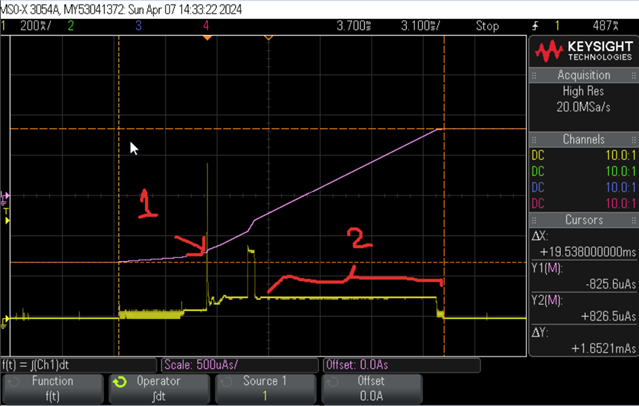Hi,
We have conducted evaluation test with the nrf7002-DK and the raw packet sample.
The code sends a burst of 3 raw packets on channels 1, 6, 11.
between each packet within the 1,6,11 burst we try to send as fast as we can.
between each burst ( 3 packets) we sleep for 1 second.
Our goal is to send raw WiFi (802.11.g) packets on a battery powered tag with power optimization in mind.
other modification for the raw packet sample:
1. transmit in legacy mode (802.11g)
2. enabled low power with this
results:
- We succeeded in capturing packets on 3 channels with wireshark.
- There is an issue when channel switching.
here are some result of power profile:
sending 1 packet on 1 channel. ~20ms.
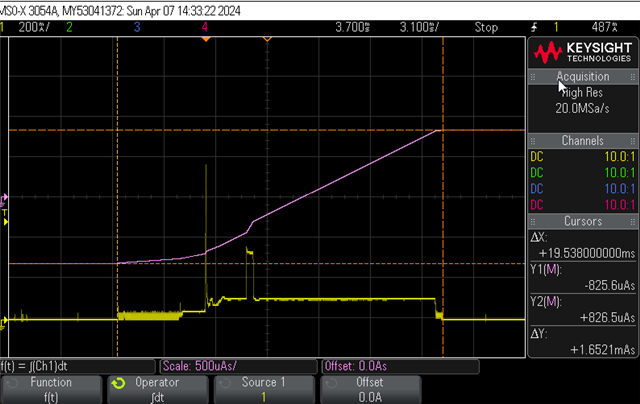
sending 3 packets on same channel (without ch switching) ~20ms
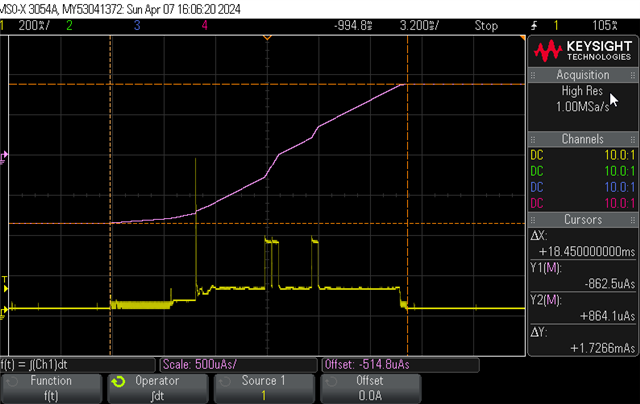
sending 3 packets with channels switching - ~752ms
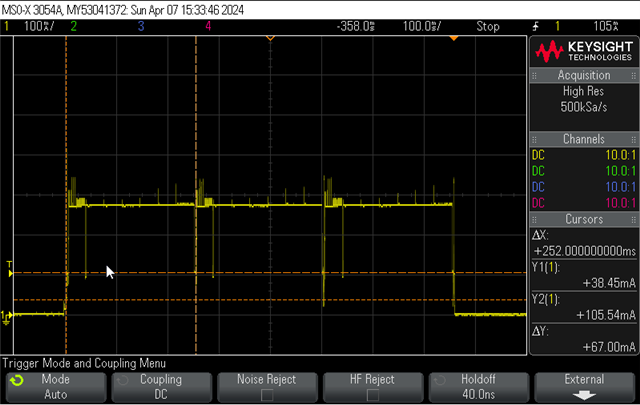
some point to look at:
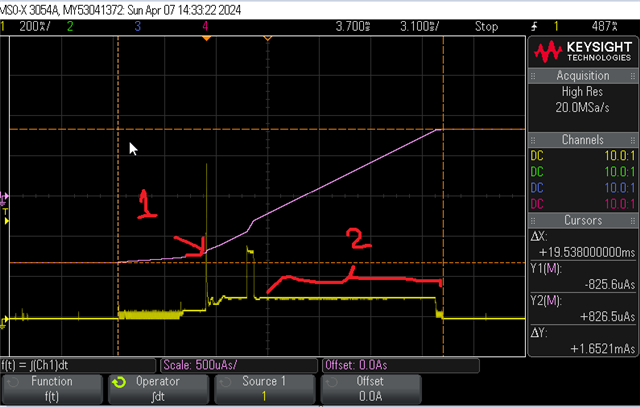
1. what is "1" peak. is this Wifi calibration?
if so, we need a way to control this.
TI cc3x20 offers 3 modes for calibration
Normal, Triggred, On-time - see link to TI network processor.
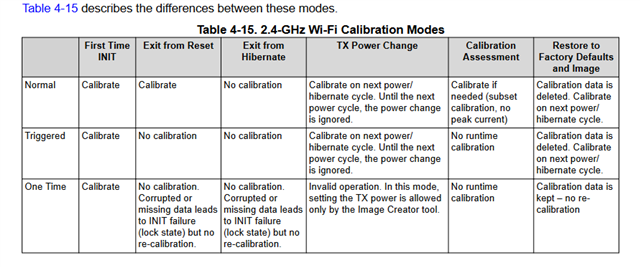
2. after transmitting, why does the chip keep on staying awake?
see "2" in image above. - we need minimum time soc is awake for max power optimization
see also thread
devzone.nordicsemi.com/.../477431
Thanks
Dan


